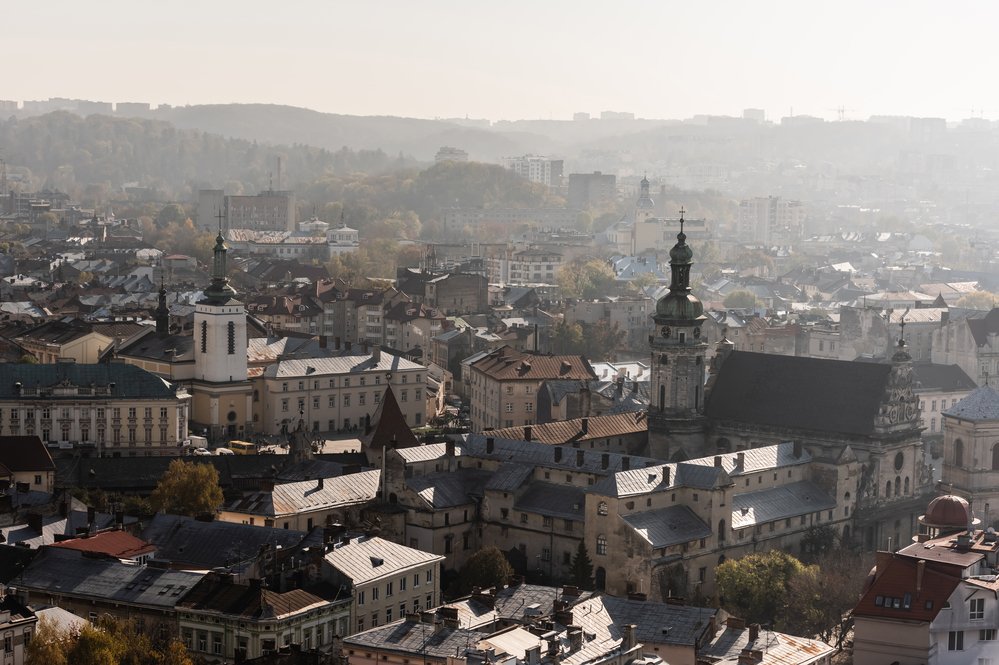In 2014, Russia used religious controls in an attempt to diminish Crimea’s cultural identity. It plans to do the same to all of Ukraine.
cultural identity. It plans to do the same to all of Ukraine.
[dc]H[/dc]ow could a Russian military movement into Ukraine affect religious liberty? Ukraine is an independent European country with a population of 41.2 million people, about the size of Texas. In 2014, Russia gained control of the northern Ukrainian peninsula of Crimea (https://religiousliberty.tv/explainer-what-is-happening-in-ukraine.html). At the time, Russian forces were amassed along the border under the pretext of protecting Russian citizens in Ukraine. On February 28, 2014, Russian troops occupied key posts, buildings, airports, and other assets in Crimea.
At the time, China supported Russia, and the United States opposed Russia. John Kerry, the U.S. Secretary of State, went to Kyiv and promised a $1 billion loan guarantee for Ukraine to decrease the effect of energy subsidy cuts that could drive Ukraine back to Russian control.
Now, eight years later, Russia controls Crimea and aims to take over the rest of Ukraine. To understand the impact on freedom of religion in Ukraine, it helps to see what has happened in the Russian-controlled regions of Crimea and Donbas.
Under Ukraine’s law, there is a guarantee of religious freedom, but religious groups need to be officially registered. In Crimea, the Russian government has reportedly detained and imprisoned Jehovah’s Witnesses and has taken buildings belonging to the group. In 2018, Russian media claimed that a mass shooter’s mother was a member of the Jehovah’s Witnesses and have reportedly referred to the church as taking a “pro-fascist” position.
[perfectpullquote align=”left” bordertop=”false” cite=”” link=”” color=”” class=”” size=””]“Moscow sees religion as a key front in the battle to control both Crimea and Donbas, and to project influence into the rest of Ukraine.” Ambassador John Herbst[/perfectpullquote]
They have also arrested several Muslim Crimean Tatars claiming they are affiliated with a fundamentalist group. According to the U.S. State Department, two Muslims were arrested and denied medical assistance.
Some Greek Catholic churches have reportedly been seized. As of 2018, the United States continued to press for Russian authorities occupying Crimea “to return confiscated property and release prisoners incarcerated for their religious or political beliefs.”
In 2020, Ambassador John Herbst, former U.S. ambassador to Ukraine, spoke about the state of religious freedom in Crimea and Donbas, also annexed by Russia. He said that Russia’s goal was to target and reduce the influence of Ukraine’s culture with a focus on religion and language. He said, “Since the annexation of Crimea, Moscow has applied Russian law towards this end; denying or revoking registration to Ukrainian parishes, seizing churches and handing them over to the Moscow Patriarchate, using blandishments and threats with the Kyiv Patriarch and then Ukrainian Orthodox Church priests either to leave their church or to inform on fellow clergy.”
When Russia invaded Crimea, there were 46 Kyiv Patriarch Churches, but by the end of 2014, there were only 9, and then it dropped to 6 by the end of 2019.
In Donbas, the situation is even worse, according to Herbst. “Initially, groups not belonging to Russia’s traditional religions were forbidden to conduct religious activities. Many places of worship, including prayer houses and temples were seized by armed groups and the arrest and harassment of other believers, including the Orthodox Church of Ukraine, the Greek Catholic Church and Protestant groups. Then, representatives of these groups were required by law to register, with criminal liability for the failure to do so. Yet, in the Luhansk Peoples Republic (LPR) the authorities rejected all Protestant registration application and re-registration requests from Baptists, Seventh Day Adventists and Pentacostals. It also required OCU parishes to affiliate with the M.P. Such policies drove many of these believers out of the LNR and the Donetsk Peoples Republics (DPR).”
Herbst said there were two reasons why the imposition of Russian law on Crimea and Donbas was disastrous. First, Russian law was more authoritarian and allowed the government to exert control of religion. Secondly, “Moscow sees religion as a key front in the battle to control both Crimea and Donbas, and to project influence into the rest of Ukraine. That gives it a geopolitical motivation to repress and control the OCU, the Greek Catholic Church, Protestants and religious organizations associated with the Crimean Tatars, and to target some activists as religious extremists.”
In September 2014, an Adventist pastor in Horlivka, which has been mostly under the control of pro-Russian forces, while some suburbs remain under Ukrainian control, was abducted at gunpoint as he was conducting a communion service. The gunmen forced him to close the church and get into a car. After 20 days, he was released and reunited with his family.
In 2016, the United States Commission on International Religious Freedom released a statement on the impact that Russia had on Crimea’s religious freedom. The statement said, ““Russia has spread its net of intolerance to Crimea and freedom of religion or belief has been its victim. The international community must not be silent in the face of these abuses. Moscow must reform its anti-extremism law, cease its application to Crimea, grant legal status to the 1,500 religious groups that operated before the Russian annexation, and stop harassing religious minorities and those the Moscow Patriarchate views as rivals.”
We will continue to keep Ukraine and the people of Europe in our prayers as this situation threatens regional if not global stability.
![]()
Featured photo: Aerial view of city hall tower and dormition church in historical center of lviv, Ukraine – DepositPhotos.com
